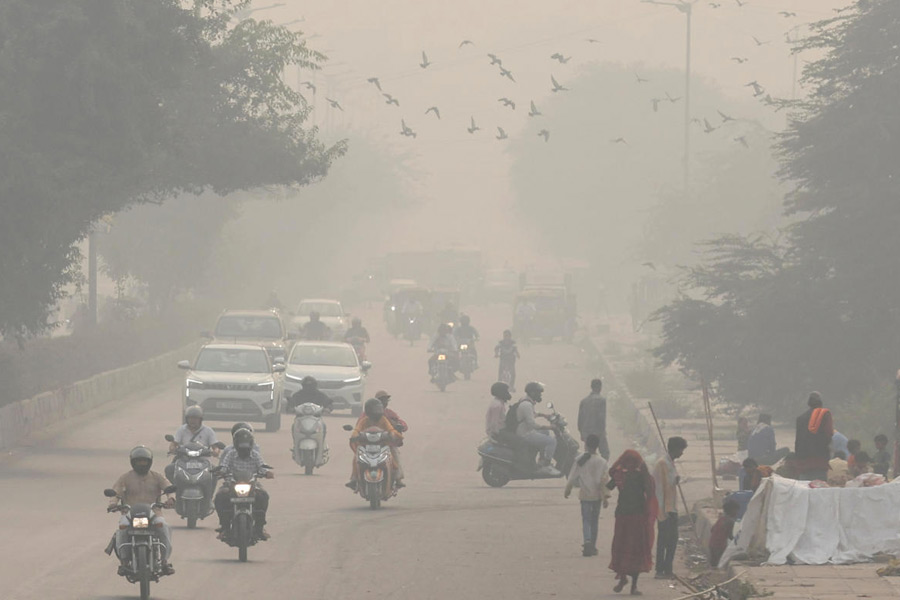Children exposed to air pollution could be at higher risk of experiencing mental health problems, including depression and psychosis, as youths, a new research has found.
The study examined the long-term effects of children being exposed to air and noise pollution while in mother's womb, early childhood and teenage.
The effects on three common mental health problems were analysed -- anxiety, depression and psychosis, a mental state in which an individual loses touch with reality and can experience hallucinations.
Researchers, led by those at the University of Bristol, UK, found that for every 0.72 micrograms per cubic metre increase in PM2.5 pollutants in the air during pregnancy, the chances of experiencing psychosis increased by 11 per cent, while those of experiencing depression increased by 10 per cent.
For the same exposure during childhood, the chances of psychosis were found to increase by 9 per cent.
The findings are published in The Journal of the American Medical Association (JAMA) Network Open.
"This is a major concern, because air pollution is now such a common exposure, and rates of mental health problems are increasing globally,” the study said.
"Given that pollution is also a preventable exposure, interventions to reduce exposure, such as low emissions zones, could potentially improve mental health," said lead author Joanne Newbury from the University of Bristol.
Exposure to pollution could be rapidly reduced by making targeted interventions available for vulnerable groups, including pregnant women and children, Newbury said.
For the study, the researchers analysed the data of over 9,000 participants from the Children of the 90s birth cohort, founded in Bristol. The cohort includes more than 14,000 pregnant women, recruited in 1991 and 1992, and were subsequently followed-up, along with their children.
The researchers compared the participants' mental health reports when they were 13, 18 and 24 years old against outdoor air and noise pollution in Bristol at those points in time.
"An increase of 0.72 micrograms per cubic centimetre in PM2.5 levels during pregnancy and during childhood were associated with elevated odds for psychotic experiences. Pregnancy PM2.5 exposure was also associated with depression," the authors wrote.
Further, being exposed to higher noise pollution in childhood and teenage was linked with raising the chances of anxiety by 19 per cent and 22 per cent, respectively.
"Childhood, adolescence, and early adulthood are critical periods for the development of psychiatric disorders: worldwide, nearly two-thirds of those affected become unwell by the age of 25.
"Our findings add to a growing body of evidence - from different populations, locations, and using different study designs - suggesting a detrimental impact of air pollution (and potentially noise pollution) on mental health," said Newbury.
The findings, by themselves, do not prove cause-and-effect relationships. However, other recent studies have shown that areas with low emissions appear to positively impact mental health, the authors said.
Except for the headline, this story has not been edited by The Telegraph Online staff and has been published from a syndicated feed.











